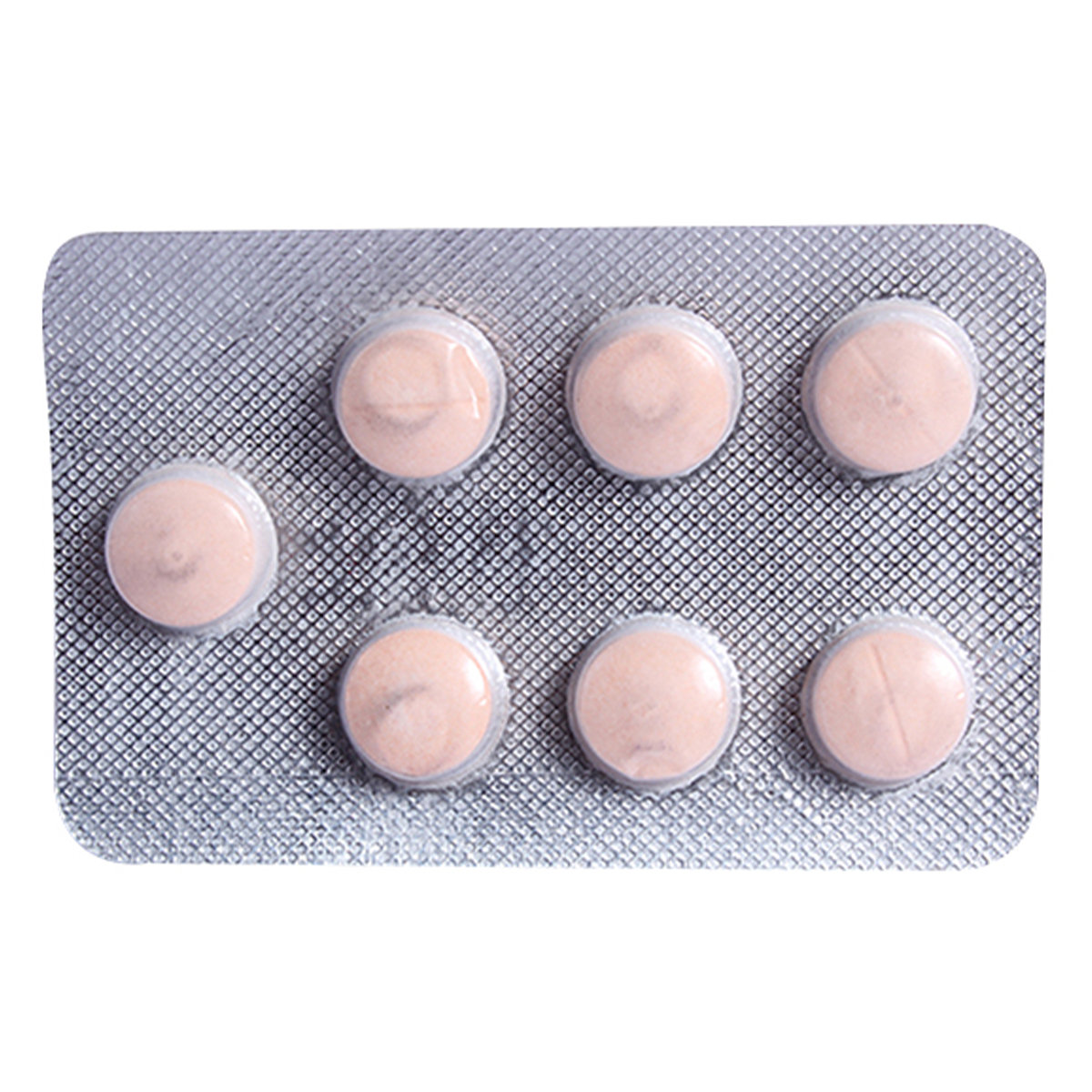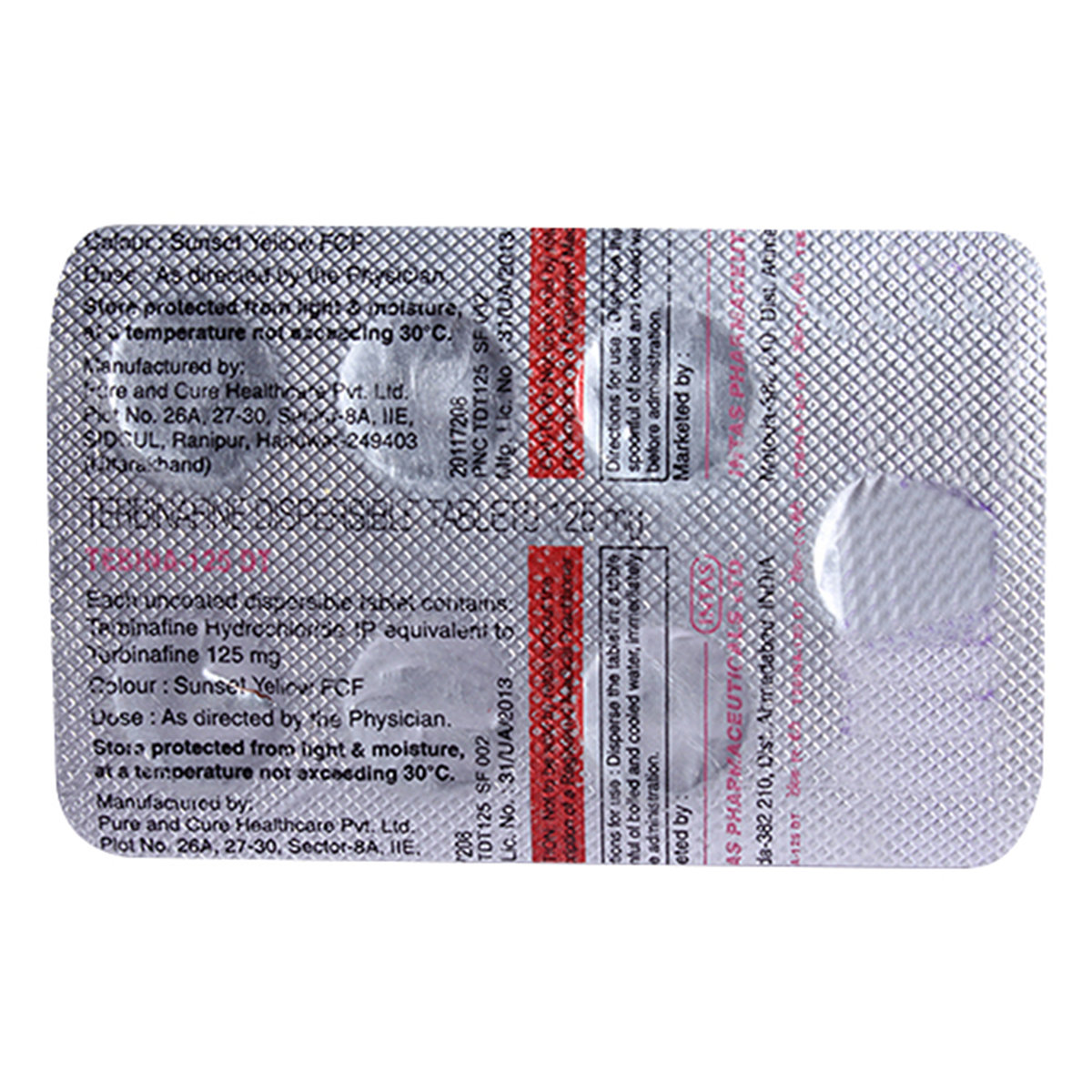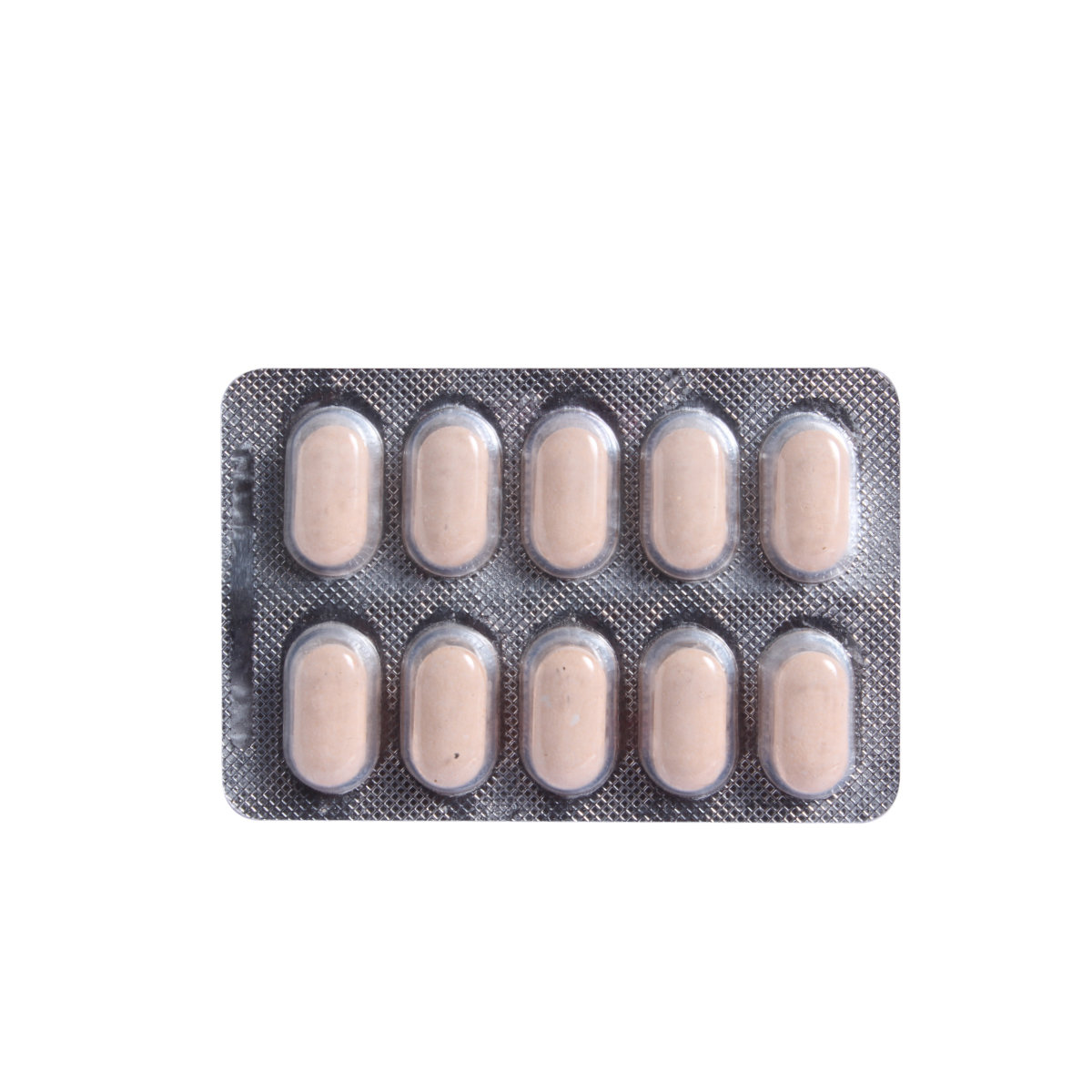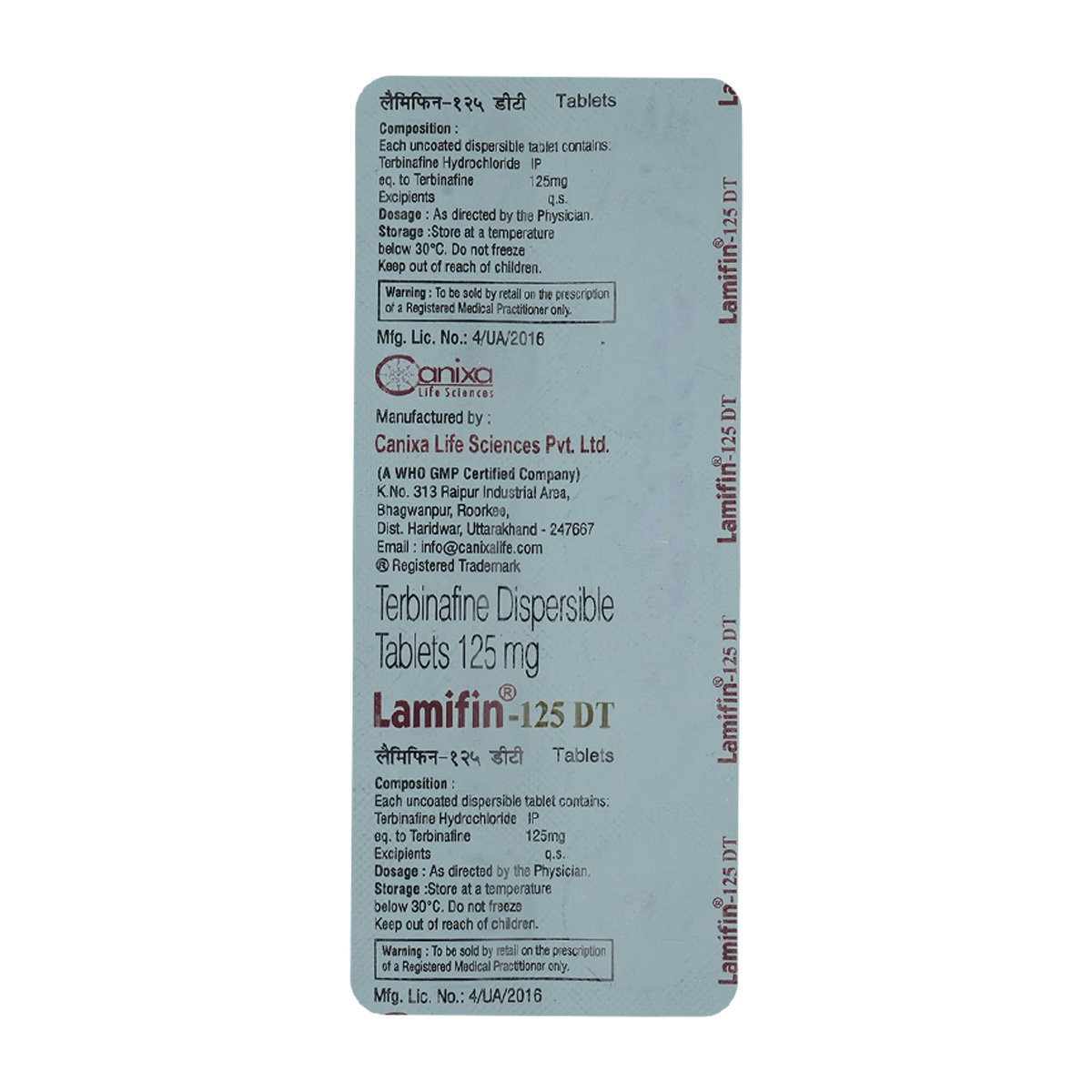Tebina-125 Dt Tablet 7's




MRP ₹98
(Inclusive of all Taxes)
₹14.7 Cashback (15%)
Provide Delivery Location
Online payment accepted
 Prescription drug
Prescription drugWhats That
Composition :
Manufacturer/Marketer :
Consume Type :
Expires on or after :
Return Policy :
About Tebina-125 Dt Tablet
Tebina-125 Dt Tablet belongs to a class of drugs called antifungals. Tablets are used to treat fungal infections of toenails and fingernails. Oral granules are used to treat tinea capitis (scalp ringworm). Fungal nail infections (onychomycosis) are common infections of toenails or fingernails that causes the nail to become thick, discoloured, or more likely to break. Tinea capitis is a fungal infection of the scalp that is contagious and causes bald, itchy, and scaly patches of the ring shape.
Tebina-125 Dt Tablet contains Terbinafine, an antifungal that works by damaging the fungal cell membranes that are essential for their survival as they prevent the entry of unwanted substances into the cells and stop the leakage of cell contents. Thereby, kills fungi and clears the fungal infection.
Take Tebina-125 Dt Tablet as prescribed. Your doctor will advise you on how often you need to take Tebina-125 Dt Tablet based on your medical condition. Some people may experience diarrhoea, stomach pain, headache, and change in taste or loss of taste. Most of these side effects of Tebina-125 Dt Tablet do not require medical attention and gradually resolve over time. However, if the side effects persist or worsen, please consult your doctor.
If you are allergic to Terbinafine, avoid taking Tebina-125 Dt Tablet. If you are pregnant or a nursing mother, it is advised to consult a doctor before using Tebina-125 Dt Tablet. Avoid or limit sun exposure while using Tebina-125 Dt Tablet as it may make skin more sensitive to sunlight. Wear protective clothing and use sunscreen while going out to protect your skin from sunburn. If you have depressive symptoms such as feeling worthless or sad, loss of interest or energy in daily activities, mood changes, restlessness, or change in sleep pattern, inform your doctor immediately.
Uses of Tebina-125 Dt Tablet
Directions for Use
Key Benefits
Tebina-125 Dt Tablet is an antifungal. Tablets are used to treat fungal infections of toenails and fingernails. Oral granules are used to treat tinea capitis (scalp ringworm). Tebina-125 Dt Tablet destroys fungal cell membranes that are essential for their survival as they prevent the entry of unwanted substances into the cells and stop the leakage of cell contents. Thereby, kills fungi and clears infection.
Storage
- Hydrate your body: Drink enough water to prevent dehydration and headaches.
- Calm Your Mind: Deep breathing and meditation can help you relax and relieve stress.
- Rest and Recharge: Sleep for 7-8 hours to reduce headache triggers.
- Take rest: lie down in a quiet, dark environment.
- Cold or warm compresses can help reduce tension.
- Stay Upright: Maintain good posture to keep symptoms from getting worse.
- To treat headaches naturally, try acupuncture or massage therapy.
- Over-the-counter pain relievers include acetaminophen and ibuprofen.
- Prescription Assistance: Speak with your doctor about more substantial drug alternatives.
- Severe Headaches: Seek emergency medical assistance for sudden, severe headaches.
- Frequent Headaches: If you get reoccurring headaches, consult your doctor.
- Headaches with Symptoms: Seek medical attention if your headaches include fever, disorientation, or weakness.
- Inform Your Doctor: Notify your doctor immediately about your diarrhoea symptoms. This allows them to adjust your medication or provide guidance on managing side effects.
- Stay Hydrated: Drink plenty of fluids to replace lost water and electrolytes. Choose water, clear broth, and electrolyte-rich drinks. Avoid carbonated or caffeinated beverages to effectively rehydrate your body.
- Follow a Bland Diet: Eat easy-to-digest foods to help firm up your stool and settle your stomach. Try incorporating bananas, rice, applesauce, toast, plain crackers, and boiled vegetables into your diet.
- Avoid Trigger Foods: Steer clear of foods that can worsen diarrhoea, such as spicy, fatty, or greasy foods, high-fibre foods, and dairy products (especially if you're lactose intolerant).
- Practice Good Hygiene: Maintain good hygiene to prevent the spread of infection. To stay healthy, wash your hands frequently, clean and disinfect surfaces regularly, and avoid exchanging personal belongings with others.
- Take Anti-Diarrheal Medications: If your doctor advises, anti-diarrheal medications such as loperamide might help manage diarrhoea symptoms. Always follow your doctor's directions.
- Keep track of your diarrhoea symptoms. If they don't get better or worse or are accompanied by severe stomach pain, blood, or dehydration signs (like extreme thirst or dark urine), seek medical help.
- Skin rash caused by allergies is due to irritants or allergens. Therefore, avoid contact with such irritants.
- Consult your doctor for proper medication and apply an anti-itch medication. Follow the schedule and use the medication whenever needed.
- Protect your skin from extreme heat and try to apply wet compresses.
- Soak in the cool bath, which gives a soothing impact to the affected area.
- Take medications with food (if recommended): It can help prevent stomach distress and indigestion.
- Eat smaller, more frequent meals: Divide daily food intake into smaller, more frequent meals to ease digestion.
- Avoid trigger foods: Identify and avoid foods that trigger indigestion, such as spicy, fatty, or acidic foods.
- Stay upright after eating: Sit or stand upright for at least 1-2 hours after eating to prevent stomach acid from flowing into the oesophagus.
- Avoid carbonated drinks: Avoid drinking carbonated beverages, such as soda or beer, which can worsen indigestion.
- Manage stress: To alleviate indigestion, engage in stress-reducing activities like deep breathing exercises or meditation.
- Consult a doctor if needed: If indigestion worsens or persists, consult a healthcare professional to adjust the medication regimen or explore alternative treatments.
- Report the itching to your doctor immediately; they may need to change your medication or dosage.
- Use a cool, damp cloth on the itchy area to help soothe and calm the skin, reducing itching and inflammation.
- Keep your skin hydrated and healthy with gentle, fragrance-free moisturizers.
- Try not to scratch, as this can worsen the itching and irritate your skin.
- If your doctor prescribes, you can take oral medications or apply topical creams or ointments to help relieve itching.
- Track your itching symptoms and follow your doctor's guidance to adjust your treatment plan if needed. If the itching persists, consult your doctor for further advice.
- Regularly brush and floss your teeth.
- Rinse your mouth with water and baking soda a solution to neutralize acid in the mouth. This makes your food taste as it should.
- Drink plenty of water or non-caffeinated drinks to prevent dry mouth which may lead to altered taste.
- Try ginger, peppermint, fruit or green teas, lemonade, ginger ale or fruit juice to help mask unpleasant tastes.
- Try sucking on sugar-free ice pops or ice cubes to prevent dry mouth.
Drug Warnings
If you are allergic to terbinafine, avoid taking Tebina-125 Dt Tablet. If you are pregnant or a nursing mother, it is advised to consult a doctor before using Tebina-125 Dt Tablet. Avoid or limit sun exposure while using Tebina-125 Dt Tablet as it may make skin more sensitive to sunlight. Wear protective clothing and use sunscreen while going out to protect your skin from sunburn. If you have lupus (an autoimmune disease), weakened immune system, kidney or liver problems, inform your doctor before taking Tebina-125 Dt Tablet. If you have depressive symptoms such as feeling worthless or sad, loss of interest or energy in daily activities, mood changes, restlessness, or change in sleep pattern, inform your doctor immediately.
Drug-Drug Interactions
Drug-Drug Interactions
Login/Sign Up
Co-administration of Thioridazine together with Tebina-125 Dt Tablet can increase the blood levels of Thioridazine and increase the risk of an irregular heart rhythm.
How to manage the interaction:
Co-administration of Thioridazine and Tebina-125 Dt Tablet is not recommended as it can lead to an interaction, it can be taken if advised by your doctor. However, if you experience any symptoms like sudden dizziness, lightheadedness, fainting, shortness of breath, or heart palpitations, contact your doctor immediately. Do not discontinue any medications without first consulting your doctor.
Co-administration of Pimozide and Tebina-125 Dt Tablet can increase the blood levels of pimozide and the risk of side effects.
How to manage the interaction:
Co-administration of pimozide and Tebina-125 Dt Tablet is not recommended as it can lead to an interaction, but it can be taken if your doctor advises. However, if you experience any symptoms like muscle spasms or movements that you can't stop or control, such as lip smacking, chewing, puckering, frowning or scowling, tongue thrusting, teeth clenching, jaw twitching, blinking, eye-rolling, shaking or jerking of arms and legs, tremor, jitteriness, restlessness, pacing, and foot tapping, dizziness, lightheadedness, fainting, shortness of breath, or heart palpitations, contact your doctor immediately. Do not discontinue any medications without consulting your doctor.
Co-administration of Teriflunomide and Tebina-125 Dt Tablet can increase the risk or severity of liver problems.
How to manage the interaction:
Co-administration of Teriflunomide and Tebina-125 Dt Tablet can lead to an interaction, but it can be taken if your doctor advises. However, if you experience symptoms like fever, chills, joint pain or swelling, unusual bleeding or bruising, skin rash, itching, loss of appetite, fatigue, nausea, vomiting, abdominal pain, dark-colored urine, light-colored stools, and/or yellowing of the skin or eyes, contact your doctor immediately. Do not discontinue any medications without first consulting your doctor.
Co-administration of Tamoxifen with Tebina-125 Dt Tablet may reduce the effectiveness of Tamoxifen.
How to manage the interaction:
Although taking Tamoxifen and Tebina-125 Dt Tablet together can possibly result in an interaction, it can be taken if your doctor has advised it. However, if you experience any symptoms, contact your doctor immediately. Do not discontinue any medications without consulting a doctor.
Co-administration of Vortioxetine and Tebina-125 Dt Tablet can increase the blood levels and side effects of vortioxetine like serotonin syndrome (A condition in which a chemical called serotonin builds up in your body)
How to manage the interaction:
Co-administration of Vortioxetine and Tebina-125 Dt Tablet can lead to an interaction, but it can be taken if a doctor advises. However, if you experience any symptoms like confusion, hallucination, seizure, increased heart rate, fever, excessive sweating, shivering or shaking, blurred vision, muscle spasm or stiffness, tremor, incoordination, stomach cramps, nausea, vomiting, diarrhea, contact a doctor immediately. Do not discontinue any medications without consulting a doctor.
Co-administration of Pitolisant and Tebina-125 Dt Tablet can increase the risk of an irregular heart rhythm and increase the blood levels of Pitolisant.
How to manage the interaction:
Co-administration of Pitolisant and Tebina-125 Dt Tablet can lead to an interaction, it can be taken if advised by your doctor. However, if you experience any symptoms like headache, insomnia, nausea, anxiety, increased heart rate, hallucinations, abdominal pain, and muscle pain, diarrhea or vomiting, contact your doctor immediately. Do not discontinue any medications without consulting your doctor.
Coadministration of Tebina-125 Dt Tablet with Eliglustat can increase the levels and side effects of Eliglustat.
How to manage the interaction:
Although there is a possible interaction between Tebina-125 Dt Tablet and Eliglustat, you can take these medicines together if prescribed by your doctor. However, if you experience nausea, upset stomach, abdominal pain, gas/bloating, diarrhea, headache, back pain, arm/leg pain, dizziness, or weakness, contact your doctor immediately. Do not discontinue any medications without consulting a doctor.
Co-administration of Dextromethorphan and Tebina-125 Dt Tablet may increase the side effects of Dextromethorphan.
How to manage the interaction:
Taking Dextromethorphan and Tebina-125 Dt Tablet together can possibly result in an interaction, but it can be taken if a doctor has advised it. However, if you experience any symptoms like difficulty breathing, dizziness, drowsiness, anxiety, restless feeling, nervousness, confusion, or diarrhea, contact a doctor immediately. Do not discontinue any medications without consulting a doctor.
Co-administration of Leflunomide and Tebina-125 Dt Tablet can increase the risk or severity of liver problems.
How to manage the interaction:
Although there is an interaction between leflunomide and Tebina-125 Dt Tablet, they can be taken together if prescribed by a doctor. However, if you experience fever, chills, joint pain or swelling, unusual bleeding or bruising, skin rash, itching, less desire to eat, fatigue, nausea, vomiting, abdominal pain, or yellowing of the skin or eyes, contact a doctor immediately. Do not discontinue any medications without consulting a doctor.
Co-administration of Lomitapide and Tebina-125 Dt Tablet can increase the risk or severity of liver problems.
How to manage the interaction:
Co-administration of Lomitapide and Tebina-125 Dt Tablet can lead to an interaction, but it can be taken if your doctor advises. However, if you experience any symptoms like fever, chills, joint pain or swelling, unusual bleeding or bruising, skin rash, itching, loss of appetite, fatigue, nausea, vomiting, abdominal pain, dark-colored urine, light-colored stools, and/or yellowing of the skin or eyes, contact your doctor immediately. Do not discontinue any medications without consulting your doctor.
Drug-Food Interactions
Drug-Food Interactions
Login/Sign Up
Diet & Lifestyle Advise
Fungal nail infections (onychomycosis):
- Keep your feet and hands clean and dry.
- Cut your toenails and fingernails short and keep them clean.
- Avoid sharing nail clippers with others.
- In wet places such as changing rooms and gym showers, wear footwear to prevent fungal infections.
- Chose a clean and licensed salon and make sure that all the instruments in the salon are sterilized after each use.
- Avoid sun exposure while taking Tebina-125 Dt Tablet as it may make skin more sensitive to sunlight. Wear protective clothing and use sunscreen while going out to protect your skin from sunburn.
Tinea capitis (scalp ringworm):
- Shampoo your child's scalp regularly, especially after a haircut.
- Use scalp conditioning products such as pomades with selenium and coconut oil as they might help to prevent scalp ringworm.
- Make sure your children wash their hands regularly even after playing with pets and keep their skin clean and dry.
- Avoid infected animals.
- Keep shared areas clean especially childcare centres and schools.
- Teach children to avoid sharing personal items such as towels, clothing, hairbrushes, etc.
Side Effects of Tebina-125 Dt Tablet
Tablets:
- Diarrhoea
- Indigestion
- Stomach pain
- Headache
- Taste disturbance
- Nausea
- Flatulence (gas)
Oral granules:
- Fever
- Vomiting
- Headache
- Diarrhoea
- Cough
- Nasal congestion
Habit Forming
Therapeutic Class
All Substitutes & Brand Comparisons
RX
Terbinator 125 mg DT Tablet 10's
Cadila Pharmaceuticals Ltd
₹129
(₹11.62 per unit)
7% CHEAPERRX
Out of StockTebina 125mg Tablet DT
Intas Pharmaceuticals Ltd
₹95
(₹12.21 per unit)
3% CHEAPERRX
Out of StockLamifin-125 DT Tablet 10's
Canixa Life Sciences Pvt Ltd
₹138.5
(₹13.85 per unit)
9% COSTLIER
Product Substitutes
Author Details
We provide you with authentic, trustworthy and relevant information
Drug-Diseases Interactions
Drug-Diseases Interactions
Login/Sign Up
FAQs
Tebina-125 Dt Tablet works by damaging the fungal cell membranes that are essential for their survival as they prevent the entry of unwanted substances into the cells and stop the leakage of cell contents. Thereby, kills fungi and clears the fungal infection.
You are recommended to avoid foods containing chocolate and caffeine such as cocoa beans, tea, coffee, cola and energy drinks while taking Tebina-125 Dt Tablet as it may increase the adverse effects of caffeine.
Tebina-125 Dt Tablet may increase the skin sensitivity to sunlight. Therefore, avoid or limit exposure to sunlight and sunlamps. You are advised to use sunscreen and wear protective clothing while going out to prevent sunburn. However, if you notice any unusual skin sensitivity while using Tebina-125 Dt Tablet such as a rash, please consult a doctor.
Tebina-125 Dt Tablet may cause changes in taste or loss of taste as a side effect. It may usually improve within several weeks after stopping Tebina-125 Dt Tablet, but may become permanent or last for a long time. However, if you have a poor appetite, unintended weight loss, loss of taste or changes in taste or change in mood or depressive symptoms, inform your doctor.
You are not recommended to stop using Tebina-125 Dt Tablet without consulting your doctor as it may cause recurring infections. Therefore, take Tebina-125 Dt Tablet for as long as your doctor has prescribed it, and if you experience any difficulty while taking Tebina-125 Dt Tablet, please consult your doctor.
Drug-Drug Interactions Checker List
- CIMETIDINE
- RIFAMPICIN
- FLUCONAZOLE
- METOPROLOL
- DULOXETINE
- DESIPRAMINE
- CODEINE
- TRAMADOL
- WARFARIN
- AMIODARONE
- CICLOSPORIN
Special Advise
Your doctor may advise blood tests before you take Tebina-125 Dt Tablet to check for liver problems.
Disease/Condition Glossary
Fungal nail infections (onychomycosis): They are common infections of toenails or fingernails caused by different types of fungi living in the environment. These germs enter the nail through small cracks in the nail or surrounding skin and cause infection. The symptoms include thick, or discoloured (brown, yellow or white) nails and nails more likely to break. Unless it becomes severe, it is not painful usually. Fungal infections are more common in toenails than fingernails.
Tinea capitis (scalp ringworm): It is a fungal infection of the scalp that involves both hair and skin. It is contagious and the symptoms include dry, itchy, scaly patches, hair loss and redness. The name ringworm is due to its circular shape. It mostly occurs in children between 3 to 7 years of age.

Have a query?
Buy best Dermatology products by
Others
AYUR
FIXDERMA
BIODERMA
VENUSIA
CANDID
SELSUN
ABZORB
ATODERM
CIPHANDS
KETO
MINTOP
UVAVO
8X
MELALUMIN
MORR
OILATUM
REJUHAIR
SUNCROS
TETMOSOL
UNISON
UV DOUX
ATBRO SAFEXX
BETADINE
COLOPLAST
DR. MOREPEN
HAIR 4U
LA SCREEN
MEDERMA
RING GUARD
SHYN-ON
SOLSET
SUNSTOP
YUVINIE
A-DERMA
AHD
ALCONANZ
AQUAHOLD
AVARTA
AVENE
BIOLINE
BIOWRIGHT
CETRILAK
CUTICOLOR
CUTILOCK
DANDEL PLUS
DEOPHIN
DOUX
DYSIS
ENMASK 50
EXIZOL
FAIR INSTA
GETRYL
GORGEUS
GUNEERA
HAIR YUTH
HH MITE
I-GLOW
ITCH GUARD
KETOFLY
KETOMAC
KETOPZ
KETOSTAR
KZ
LIPZ
MANKIND
MEDRAYS
MELAGARD
MELNORA BLUV
MICROSTERILE
NO SCARS
OAKNET
ONABET
PARASOFT
PERCOS
PHOTON
PHOTOSTABLE
PHYSIOGEL
PROTEK
RADIBAN
RASHFREE
REGALIZ
RENOCIA
SALISIA
SEBANDRO
SEBORBAR
SESTRY
SOLASAFE
SOLECROSS
STERILLIUM
SUDERMA
SUN KROMA
SUNCLIP
SUNHEAL
SUNMATE
SUNTRIS
TAIYU
TEDIBAR
THERUPTOR
TRICOGRO
Glenmark Pharmaceuticals Ltd
Sun Pharmaceutical Industries Ltd
Klm Laboratories Pvt Ltd
Cipla Ltd
Canixa Life Sciences Pvt Ltd
Abbott India Ltd
Ajanta Pharma Ltd
Intas Pharmaceuticals Ltd
Dr Reddy's Laboratories Ltd
East West Pharma India Pvt Ltd
Alkem Laboratories Ltd
Atopic laboratories Pvt Ltd
Hegde & Hegde Pharmaceutica Llp
Brinton Pharmaceuticals Ltd
Torrent Pharmaceuticals Ltd
Amwill Healthcare Pvt Ltd
Leeford Healthcare Ltd
Palsons Derma Pvt Ltd
Oaknet Healthcare Pvt Ltd
Med Manor Organics Pvt Ltd
Micro Labs Ltd
Dermocare Laboratories Gujarat Llp
Fixderma India Pvt Ltd
Apex Laboratories Pvt Ltd
Mankind Pharma Pvt Ltd
Ipca Laboratories Ltd
Yaher Pharma
Systopic Laboratories Pvt Ltd
Menarini India Pvt Ltd
Ethinext Pharma
Nemus Pharmaceuticals Pvt Ltd
Skinocean Pharmaceuticals
Dermacia Healthcare
Inex Medicaments Pvt Ltd
Lupin Ltd
GlaxoSmithKline Pharmaceuticals Ltd
Talent India Pvt Ltd
Zydus Cadila
Kivi Labs Ltd
Zydus Healthcare Ltd
Hbc Dermiza Healthcare Pvt Ltd
Mrhm Pharma Pvt Ltd
Regaliz Medicare Ltd
Sol Derma Pharmaceuticals Pvt Ltd
Newtrimed Healthcare Pvt Ltd
Wallace Pharmaceuticals Pvt Ltd
Eskon Pharma
Glowderma Lab Pvt Ltd
La Pristine Bioceuticals Pvt Ltd
Mohrish Pharmaceuticals Pvt Ltd
Percos India Pvt Ltd
Rockmed Pharma Pvt Ltd
Macleods Pharmaceuticals Ltd
Praise Pharma
Ethicare Remedies Pvt Ltd
Kaizen Drugs Pvt Ltd
Aurel Biolife
Rely On Pharmaceuticals
Wockhardt Ltd
Galcare Pharmaceuticals Pvt Ltd
Elder Pharmaceuticals Ltd
Indiabulls Pharmaceuticals Pvt Ltd
La Med Healthcare Pvt Ltd
Biocute Life Care
Yap Bioceuticals
Yash Pharma Laboratories Pvt Ltd
Zee Laboratories Ltd
Apple Therapeutics Pvt Ltd
Adonis Laboratories Pvt Ltd
Albatross Healthcare Pvt Ltd
Galderma India Pvt Ltd
Prism Life Sciences Ltd
FDC Ltd
Alniche Life Sciences Pvt Ltd
Salve Pharmaceuticals Pvt Ltd
West Coast Pharmaceuticals Pvt Ltd
Dermarex HealthCare India Pvt Ltd
Arka Vital Science Pvt Ltd
Dermajoint India
Gary Pharmaceuticals Pvt Ltd
Grace Derma Healthcare Pvt Ltd
Karlin Pharmaceuticals & Exports Pvt Ltd
Skinska Pharmaceutica Pvt Ltd
Uniza Healthcare Llp
Alembic Pharmaceuticals Ltd
Cadila Healthcare Ltd
Cadila Pharmaceuticals Ltd
Cosmofix Technovation Pvt Ltd
Human Pharmaceuticals
Indolands Pharma Pvt Ltd
Lyra Laboratories Pvt Ltd
Akumentis Healthcare Ltd
Entod Pharmaceuticals Ltd
Iceberg Health Care Pvt Ltd
Jenburkt Pharmaceuticals Ltd
P and P Dermaceuticals Pvt Ltd
Dabur India Ltd
Indchemie Health Specialities Pvt Ltd
Olcare Laboratories Pvt Ltd
Unison Pharmaceuticals Pvt Ltd
BODY CREAM
Body Lotion
Face Cream
Shampoo
Sun Screen
Face Gel
Soap
Face Wash
HAIR SOLUTION
Face Serum
BODY GEL
Hair Lotion
Hair Serum
Dusting Powder
ANTISEPTIC
FACE CLEANSER
Face Lotion
Body Wash
Body Spray
Eye Cream
FUNGAL INFECTION
Foot Cream
Conditioner
Eye Gel
Cleanser
Hair Cream
Hair Oil
Face Mask
Hair Gel
Sanitizer
Hair Spray
Moisturiser
Skin Ointment
Lip Balm
Capsule
Eye Serum
Intimate Wash
Specialty Supplements
Hand Cream
Facial Spray
SPECIALITY SUPPLEMENT
Face Toner
MEDICATED SHAMPOO
Tablet
Talcum Powder
BABY SUNSCREEN
Body Butter
Body Scrub
DIAPER RASH CREAM
EYE SOLUTION
FACIAL WIPE
Gargle
Hand Wash
Intimate Spray
Lip Serum
Lubricant Gel
MEDICATED CREAM
Nail Polish
VITAMIN D
Alcohol
Safe if prescribed
Interaction of alcohol with Tebina-125 Dt Tablet is unknown. Please consult a doctor before consuming alcohol with Tebina-125 Dt Tablet.
Pregnancy
Consult your doctor
Tebina-125 Dt Tablet is Category B pregnancy drug and is given to a pregnant women only if the doctor thinks benefits outweigh risks.
Breast Feeding
Consult your doctor
Tebina-125 Dt Tablet may be excreted in human milk and harm the baby. Therefore, it is not advised for breastfeeding mothers.
Driving
Safe if prescribed
Tebina-125 Dt Tablet may cause dizziness. Therefore, drive only if you alert after taking Tebina-125 Dt Tablet.
Liver
Consult your doctor
Take Tebina-125 Dt Tablet with caution, especially if you have a history of Liver diseases/conditions. The dose may be adjusted by your doctor as required.
Kidney
Consult your doctor
Take Tebina-125 Dt Tablet with caution, especially if you have a history of Kidney diseases/conditions. The dose may be adjusted by your doctor as required.
Children
Safe if prescribed
Tablets are not recommended for children below 12 years as the safety and effectiveness were not established. Oral granules are recommended for children aged 4 years and above if prescribed by the doctor.







_0.jpg?tr=q-85)
